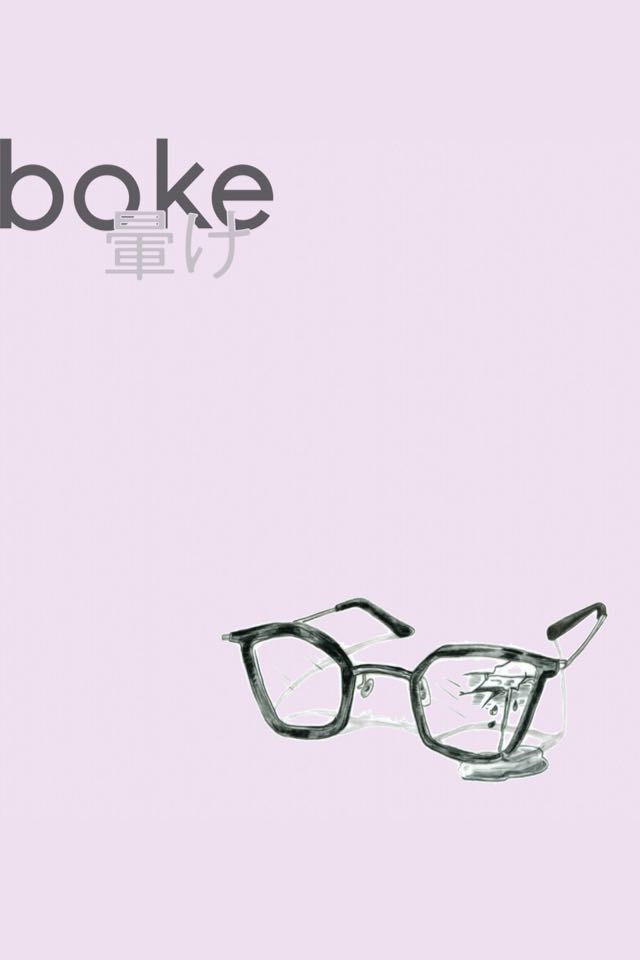boke 暈け
— Terry Abrahams
boke is a blue collection, a rainy collection, a walking collection.
Already so accurately summarized is this chapbook that I had to start here. The square, palm-sized shape of it makes it easy to hold and easier to read. It’s short, but not without warrant—it’s just enough. There is no want for more.

The poems within collect a journey that’s not as physical as it is emotional. They feel suspended in a bubble of blue, something that slows you down as you enter it, like being underwater—able to move through it, but at a pace that makes you feel alien, unsure. Unwavering, though, is the effect of this, as captured by Gui’s words. You feel so entirely alive.
I was lucky to hear Gui read from her collection not once, but twice—it’s the type of poetry that can fill a room. But it’s easy to consume on your own, too. Gui’s poems take the reader with them: they travel, slowly, but surely, through time, space, feeling. In an effortlessness that clearly took much effort, this collection has a flow. Like the images of water, city streets, birds and light it invokes, there they flow around and through and under, difficult to navigate, but easy to see and enjoy. I was particularly moved by the concrete and recurring images of travel—airports, markets, hands reaching for hands, the blurred edges of it all as so often experienced when somewhere new.
Jacqueline Lai’s illustrations add a certain charm to the work. They frame the short poems that all draw back to the title. Each poem begins with an action, or perhaps, a request: we are asked, or reminded, or told (I’m unsure, as it can come across differently depending on your mood—another effect of the walking style), to blink, to then consume the image after the blink in—literally—the blink of an eye. It’s impossible to absorb everything in a single scene in one quick glance, but that’s what Gui gives us: a fragment. But Lai’s illustrations change that. They allow the reader to linger. If you read as fast as I do, you’ll understand: sometimes it is hard to slow down. The illustrations help you.
blink:
Do we ever tire of leaping out of nets into the still of surfaces?
This simple (but loaded) question is surrounded by an image of fish leaping up from the water, bellies facing the viewer who is, quite literally, looking down on them. Matching the vulnerability and sadness to be found in the question itself, this illustration in particular struck me as exemplary, its connection to the single line it frames so stark and so very stilling.
It is best to mention here, at the end, that bokeh, or boke, is an Anglicized Japanese word that is used, most commonly, in reference to blurs or bubbles of light in photography. Beautiful and out of focus, not unlike the atmosphere found here in this collection—there is something in that strange blur that makes one stop, linger, wonder.